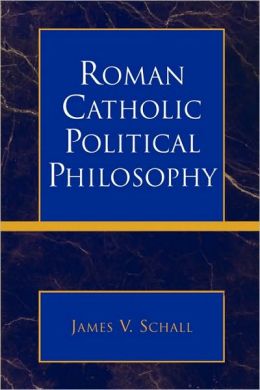 “Roman Catholicism is primarily concerned with man’s transcendent end and purpose,” says Rev. James V. Schall, S.J., “with how it is achieved in actual lives, in actual places, and in real time.” Rev. Schall considers how Catholicism and political philosophy are connected:
“Roman Catholicism is primarily concerned with man’s transcendent end and purpose,” says Rev. James V. Schall, S.J., “with how it is achieved in actual lives, in actual places, and in real time.” Rev. Schall considers how Catholicism and political philosophy are connected:
A course in “Roman Catholic Political Philosophy” is rarely found in any academic institution, including those sponsored by the Church. We do find courses titled “Religion and Politics,” “Social Doctrine of the Church,” or “Church and State” — but “Roman Catholic Political Philosophy” is something different. Going back to Plato, it is common to find that most people consider philosophers and academics, not to mention clerics, to be rather foolish and naïve when it comes to dealing with the practical affairs of this world. Philosophers are notorious for studying everything else but politics; and when they do, they insist on studying them as if their object were like that of the physical sciences and not free human agents. Aristotle already warned us not to use a method that was inappropriate to the nature of the object studied.
But there are two questions combined in that title: First, what is political philosophy? And second, what is Roman Catholicism? The two are not to be confused. They are, if possible, to be related in a coherent, non-contradictory whole such that each retains its essential nature while relating to the other. Whether we like it or not, both are present in the actual human world in which we live. Philosophy, to be itself, cannot, by its own methods, exclude any consideration of what is, of what claims to be true. Roman Catholics, during their time on earth, live in the polities to which they belong or dwell in. Like everyone else, they too are “political animals,” as Aristotle said.

